Make room Marvel, there’s a new crossover in town, and it’s bringing two powerhouse fandoms together like never before. The trading card game titan Magic: The Gathering joins forces with Dungeons & Dragons, the bestselling tabletop roleplaying game, in Adventures in the Forgotten Realms. The MTG expansion set takes cardplayers into the world of D&D.
While the two games have their parallels — critical strategy, rich lore, and spellcasting in high fantasy settings — many Magic players have avoided taking the roleplaying plunge. But here are 10 reasons why you should finally try your hand at D&D.
1. Common and uncommon ground
D&D has previously explored Magic settings in two books: Guildmasters’ Guide to Ravnica and Mythic Odysseys of Theros. These allow players to create characters who are members of famed guilds like the Boros Legion and Selesnya Conclave or come face to face with the gods of Theros. The upcoming release of Strixhaven: A Curriculum of Chaos, meanwhile, will let you walk the halls of the famed school of magic.
As you play Adventures in the Forgotten Realms, you'll meet classic characters and explore famed locations from D&D lore. For example, MTG's Venture mechanic takes you into three dungeons from the roleplaying game: Tomb of Annihilation, Lost Mine of Phandelver, and Dungeon of the Mad Mage. Each have their own D&D adventure books.
2. Choose your own adventure
You enter a room surrounded by old, dusty books. Atop a reading desk in the center of the room sits a large tome with glowing runes. What do you do?
Perhaps you cast detect magic on the book, or cartwheel around the desk singing, “Let’s do the Time Walk again!” as loud as you can. In D&D, you can try just about anything, without the constraints of the cards in your hand or the permanents in play.
3. Role initiative
At its heart, D&D is a storytelling game. One of the best elements of it is the ability to imagine, create, and fully customize your own character.
When you create a character, you'll breathe life into them by writing their backstory, deciding how they appear and act, and determining what they're good at (and not so good at). You'll select a class and race and equip your person. Does your character quest in the name of good, evil, or something else? If you’re attracted to this kind of intricate personalization and variety, then it’s time to put D&D on the stack.
Create your first D&D character
D&D Beyond is an official digital toolset for Dungeons & Dragons. The basic rules of the game are free to access.
To make your first character, sign up to access the character builder. Quick Build makes character creation fast so you can jump right into playing. If you sign up for a Master-tier subscription to D&D Beyond, you can share books you purchase with friends via content sharing. You also gain access to helpful tools that make playing easier.
4. Let’s get classy
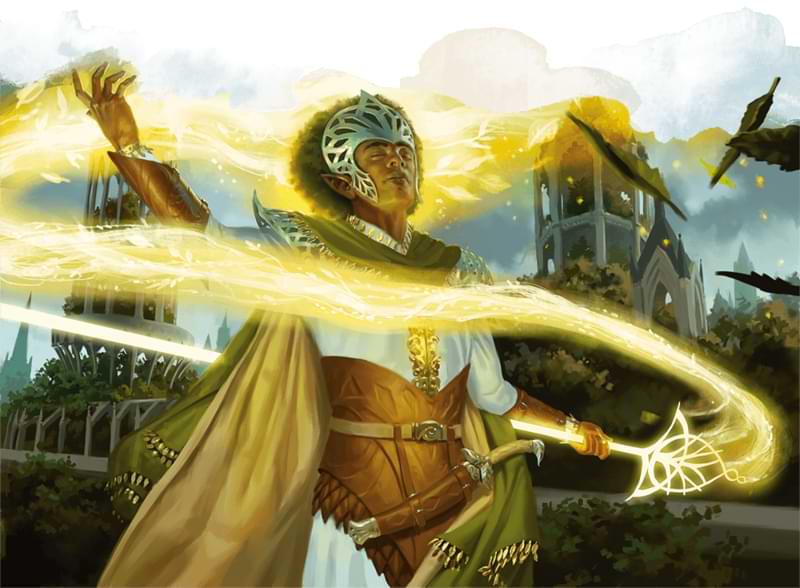
As a Magic player, you’re already familiar with many of the features that characterize certain D&D classes — roles that you choose to identify your skills and abilities. Do you play green with an affinity for powerful beasts and the natural world? Settle into the forests and streams as a druid or ranger. Are you a fan of blue decks, cleverly and patiently outsmarting your enemy from a vantage? Wizards, obviously. Do you feel kindred with supportive abilities like Lifelink and Vigilance in white? Then you’ll feel at home playing clerics and paladins.
Adventures in the Forgotten Realms offers a new mechanic that links these concepts closer: class enchantments. These cards capture the sense that you the player are a character. Take a stab at the rogue class or go berserk as a barbarian to get a glimpse of this staple D&D feature.
5. 'I cast magic missile'
You’ve heard it. I’ve heard it. Your friend who’s never played a tabletop game has probably heard it. Spellcasting is the crux of MTG, and it’s an integral element to D&D.
Every wizard has the power to unleash a board-wiping fireball or boss-killing lightning bolt. A bard may play songs to empower their party members. A druid may entrap approaching enemies in a sea of strangling vines.
If you’ve played a burn deck, you know the rush of a well-timed Lightning Strike. If you’re a control player, you know the sweet satisfaction of casting a counterspell on unsuspecting opponents. Sorceries, and especially instants, make spellcasting an exciting and dynamic part of gameplay. Except for a few turn-based combat mechanics in D&D, the roleplaying game is instant-speed.
6. Strategy and tact and puzzles, oh my!
While battlefields in D&D look a bit different — usually involving a dry-erase map with a square grid — combat is very much part of the game. Players work cooperatively in adventures to achieve a certain goal. Party balance — foundationally a fighter, rogue, cleric, and wizard — is similar to deck synergy (think: BREAD). You need to secure a balanced and strategic approach while preparing and planning for what might come your way.
Solving puzzles requires concentration and discipline. Sure, there’s an element of luck to both games, but using talent and smarts will help keep you alive in D&D and thriving.
7. The d20
The twenty-sided die gets her own section. She’s so much more than a life counter. She is fate, personified. She is the Maker of Moments. Breaker of Dexterity Saving Throws. Queen of the Realms. The Mother of … well, Dragons. Almost everything you attempt to do in D&D requires a die roll, and none is more sacred than the d20.
Experience the absolute thrill of a natural 20...
Evading the beholder’s Disintegration Ray with ease, you charge forth with a deadly double ax thrash! The creature crumbles to your feet — lifeless.
… and the distressing defeat of failure:
As you sneak into the bandits' hideout, you trip over your own feet and alert the guards to your presence.
Like any sacred object, the d20 deserves both your awe and your respect: what she giveth in a time of need, she taketh on a whim, keeping the game exhilarating and unpredictable.
8. Upkeeping it together
Healthy competition can inspire us all to be the very best — like no one ever was. Sorry, it’s engrained. MTG tournaments and drafts provide an excellent opportunity to test your competitive streak and demonstrate your gameplay prowess. But if you’d like to take a break from the fierce sparring of Friday Night Magic, D&D is a social gathering rooted in community and cooperation. Adventures bring players together while building relationships.
As an adventure progresses, your party gains experience and growth, both in-game and in real-time. Players create lifelong memories and unique storylines. It’s personal and immersive, full of countless you-can’t-write-this-stuff moments. Like the time my wall of fire lessened the onslaught of a frost worm’s Death Burst by partially melting the piercing icicles, saving our party from certain death.
9. Lore galore and Salvatore
There are countless books set in Faerûn, the land of the Forgotten Realms. Most famously are several dozen by R.A. Salvatore, creator of the infamous dark elf with a heart of gold, Drizzt Do’Urden. Alongside his planar panther, Guenhwyvar, and companions like Bruenor Battlehammer, Drizzt adventures through the Spine of the World, the Underdark, and Neverwinter, fighting evil and the web of chaos woven by Lolth the Spider Queen (now a planeswalker).
Delve deeper into the rich history of the Forgotten Realms, and get up close and personal in settings throughout Faerûn. With D&D, one does simply walk into more lore.
10. Beauty is in the eye of the beholder
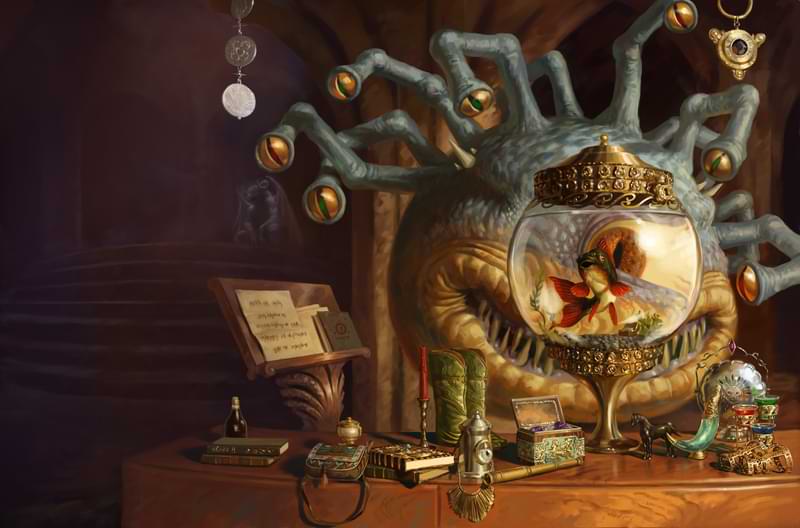
Stunning, detailed, gorgeous art. I’m looking at you, Bitterblossom and Baleful Strix. Without a question, both MTG and D&D have some of the most imaginative fantasy art in all of nerdom. With the merging of lore, players of both games are now privy to a cohesive and comprehensive visual story.
It’s time to roll
So, fellow MTG enthusiasts, what have we gathered? In both games, players face obstacles and challenges that they must overcome to receive rewards, advancement, and new opportunities. But simply put, D&D is unparalleled in its immersive experience.
D&D players build expansive worlds with one-of-a-kind storylines, all conveniently structured with adventure books and sourcebooks. The roleplaying game has a defining win condition all gamers can get behind, too: have fun. And it has something MTG players can’t resist: it’s full of untapped mana. I mean potential.
End Step.
Fizban's Treasury of Dragons is now available for preorder on D&D Beyond! The book adds new player options, including draconic ancestries for dragonborn, dragon-themed monk and ranger subclasses, as well as feats and spells. Learn all about 20 different kinds of dragons and their minions. Dungeon Masters will enjoy the included lair maps and the rich lore behind the First World and more! Those with a Master-tier subscription can share books they've purchased with players in their campaigns.
Jessie Lyn Thompson (@twowhitewolves) earned her Creative Writing BA from Pepperdine University. She resides outside Los Angeles with her husband and five floofs. She will literally always play a druid, and she favors Selesnya decks.








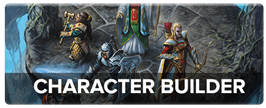
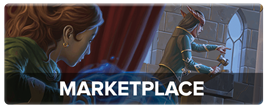
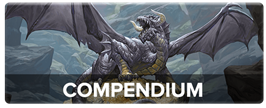
-
View User Profile
-
Send Message
Posted Jul 27, 2021I am a Johnny/Timmy. I dislike Spikes, until I beat them....
Like when I played FNM and the popular deck was faeries. Best player in the tourney was playing it, wiped the board with me game one, got smoked quickly game 2, and lost game 3 at time as I had way more life. I was playing goats with lots of ways to bring back Springjack Shepherd and gain life. Then I beat another guy with some netdeck as we went to time on game 1 and I had more life. They asked me not to bring it back next week as it was taking all games to time. Fair enough, so next week I came back with UW merfolk where I could gain infinite life, make infinite creatures and do infinite mill - simultaneously.
-
View User Profile
-
Send Message
Posted Jul 27, 2021Is the title of the article supposed to be 'You're Already Giving Wizards Hundreds of Dollars, Why Not Give Them Even More?'
-
View User Profile
-
Send Message
Posted Jul 28, 2021That last deck sounds... interesting.
-
View User Profile
-
Send Message
Posted Jul 29, 2021"Why Magic: The Gathering players need to play D&D"
me: because it's better than a shite card game?
"Why D&D players should play MTG"
-
View User Profile
-
Send Message
Posted Jul 29, 2021awesome article
-
View User Profile
-
Send Message
Posted Aug 27, 2021In my opinion MTG is infinitely better than DnD, plus more people play MTG. I have seen some people who start out playing MTG then learn about DnD and forget about Magic.
I also feel like MTG has more was to customize. In DnD the only way we can customize is by homebrewing things, and making our NPCs and PCs' personalities and backstories and fighting styles. Were as in magic you can create you own strategies, alter card art and buy new cards with diffrent art to suit your personality better. You are also a planeswalker in magic, so you can create their back story and mana colors they specialise in. I also think it's easist for us players to make custom MTG cards for our PCs and NPCs, but it's harder to incorperate MTG legendary creatures into homebrew monsters.
-
View User Profile
-
Send Message
Posted Aug 27, 2021Incorrect
-
View User Profile
-
Send Message
Posted Nov 18, 2021Dungeons & Dragons: Adventures in the Forgotten Reams was a big crossover, and probably inspired many Magic players to play D&D. A huge marketing success on WotC’s part, too. Not to mention, we now have Ellywick Tumblestrum, a Planeswalker from the Forgotten Realms who’s even appeared in a module! I can’t wait to see the crossovers continue from here.
-
View User Profile
-
Send Message
Posted Nov 19, 2021I have played both, for decades. You may not like MtG but to call it a shite card game is pretty pointless...